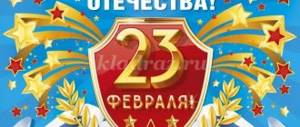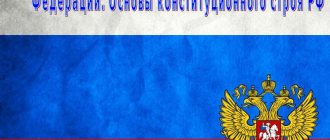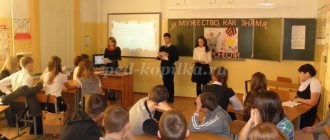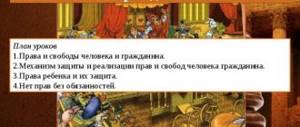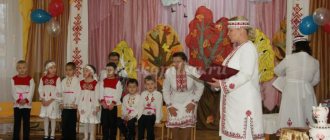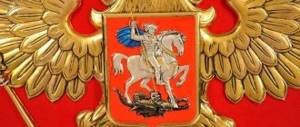Presentation “Russian Science Day”
Every year on February 8, the domestic scientific community celebrates its professional holiday - Russian Science Day, established by Decree of the President of the Russian Federation in 1999.
The Decree states that the holiday was established “ taking into account the outstanding role of domestic science in the development of the state and society, following historical traditions and in commemoration of the 275th anniversary of the founding of the Academy of Sciences in Russia.”
In the Soviet Union, the Academy acquired the name of the USSR Academy of Sciences. After the collapse of the USSR in 1991, the Russian Academy of Sciences was organized. In 1999, the Academy celebrated its 275th anniversary. Thus, the tradition of celebrating Science Day on February 8 was restored. The Russian Academy of Sciences today is the largest research center in our country.
The Day of Russian Science is dedicated to the date of the establishment of the Russian Academy of Sciences by Peter I on February 8, 1724.
The structure
of the RAS includes 9 departments in areas and areas of science, 3 departments and 15 scientific centers of a regional nature.
There are also branch state academies of sciences: “Russian Academy of Education”, “Russian Academy of Medical Sciences”, “Russian Academy of Agricultural Sciences”, “Russian Academy of Architecture and Construction Sciences”, “Russian Academy of Arts”.
In total, the Academy has 470 scientific institutions, more than 55 thousand scientific employees,
including more than
500 academicians
and
800 corresponding members.
From the 18th century to the present day, Russia has made a huge contribution to the development of world science. Mikhail Vasilyevich Lomonosov, Ivan Petrovich Pavlov, Dmitry Ivanovich Mendeleev, Konstantin Eduardovich Tsiolkovsky, Pyotr Leonidovich Kapitsa, Lev Davidovich Landau, Igor Vasilyevich Kurchatov, 3 Pavel Sergeevich Alexandrov, Sergei Pavlovich Korolev - these are just a small part of the names of Russian scientists who have contributed to world science . Russia became the first country where the doctrine of the biosphere was developed, for the first time in the world an artificial Earth satellite was launched into space, and the world's first nuclear power plant was put into operation
Founders of Russian science.
Russian scientists of the XX-XXI centuries. were continuers of scientific traditions that were laid by scientists of the past.
Ivan Petrovich Pavlov
- an outstanding Russian biologist, the first Nobel Prize laureate in Russia.
Mikhail Vasilievich Lomonosov
– scientist and inventor left a huge mark in many areas of human
He became the founder of the largest Russian physiological school and the creator of the doctrine of higher nervous activity. He studied digestion, blood circulation, and higher nervous activity of man. His discoveries still serve medicine today. Pavlov passionately believed in science, believed that it was science that could save “the human race from disease, hunger, enmity, and reduce grief in people’s lives.”
activities: literature, physics, chemistry, geography, geology, metallurgy, astronomy, history, etc. Dmitry Ivanovich Mendeleev is a great Russian scientist-encyclopedist, chemist, physicist, technologist, geologist and even meteorologist. His main discovery was the Periodic Table of Chemical Elements.
Ilya Ilyich Mechnikov
- an outstanding Russian microbiologist, physiologist, immunologist, founder of scientific gerontology. Gerontology is a science that studies the biological, social and psychological aspects of human aging, its causes and ways to combat it (rejuvenation). Mechnikov's numerous works on bacteriology are devoted to the epidemiology of cholera, typhoid fever, tuberculosis and other infectious diseases.
Nikolai Egorovich Zhukovsky
- “father” (and sometimes they say “grandfather”) of Russian aviation. In 1918, Zhukovsky created the Central Aerohydrodynamic Institute. Now this is TsAGI - the largest state scientific aviation center in Russia, which bears the name of its creator. NOT. Zhukovsky believed that a person would definitely fly, relying on the power of his mind.
Konstantin Eduardovich Tsiolkovsky
, “the father of Russian cosmonautics,” is a modest, self-taught teacher from Kaluga who developed the theory of interplanetary flight, thanks to which man was able to penetrate into space.
Outstanding domestic scientists and inventors.
Domestic scientists have presented world science with many inventions and made many interesting discoveries in various fields of science and everyday life. Who invented the first parachute
?
A safe road from air to ground for pilots was paved in 1911 by Russian inventor Gleb Evgenievich Kotelnikov
, son of a professor of mechanics and higher mathematics. He suggested using a compactly folding parachute in such cases. The silk dome was attached to the shoulder girths of the suspension system using slings. Kotelnikov was prompted to create a parachute by the death of pilot L.M. Martsievich, who made a very strong impression on him.
A television
, without which it is difficult to imagine our lives today, was invented at the very beginning of the last century by the domestic scientist
Boris Lvovich Rosing
. On July 25, 1907, he announced to the whole world about the possibility of transmitting images over a distance using electrical signals, and in 1911 he demonstrated his invention to the Russian technical society. Under the guidance of Professor B.L. Rosing worked for several years as the inventor of picture tubes for black-and-white and color television, Vladimir Kozmich Zvorykin.
Parachute and gas mask, radio and television, telegraph and astronautics, periodic system of chemical elements, photosynthesis, lasers, synthetic rubber, electric welding, vitamins, anesthesia, high-octane gasoline, tankers, tanks, oil pipelines, the world's best submarines, computer tomographs, three-phase system current - all this was created, discovered and invented by Russian scientists.
It is the 20th century that is called the Golden Age of Russian science. At the very beginning of the last century, such world-famous stars of Russian science as D. Mendeleev, K. Tsiolkovsky, I. Pavlov, I. Mechnikov, V. Bekhterev, N. Zhukovsky shone on the scientific horizon of Russia. Then the baton of scientific discoveries was picked up by S. Korolev, A. Tupolev, I. Kurchatov, D. Sakharov, M. Keldysh, L. Landau and others. They brought Russian science to the ranks of world leaders.
The Nobel Prize
is the most prestigious award in the field of science.
It has been awarded since 1901 for outstanding scientific research, revolutionary inventions, or major contributions to culture or social development. The prize is named after the famous scientist Alfred Nobel and, in accordance with his will, is awarded to the winner in each of five scientific fields: physiology and medicine, physics, chemistry, literature (all since 1901) and economics (since 1969). Fifteen Russian and Soviet scientists were awarded Nobel Prizes.
The first of those awarded, in 1904, was Academician I.P. Pavlov for his work on the physiology of digestion, then, in 1908, - I.I. Mechnikov for his work on immunity ( chemist N. Semenov, physicists P. Cherenkov, I. Tamm, I. Frank, L. Landau, N. Basov, P. Kapitsa, A. Prokhorov, Zh. Alferov). The last Russian laureate was physicist K.S. Novoselov, who received the Nobel Prize in 2010 for his pioneering experiments in the study of the two-dimensional material graphene.
Discoveries have influenced and continue to influence our lives and, without the discoveries of domestic scientists, it would be impossible to use modern gadgets today.
Many of the students can become scientists and inventors and make a discovery that is very important for the whole world. At the same time, it does not matter at all in what area it will be done, what specialty and profession this or that student of today will become, or where exactly he will work. The main thing is to obtain the necessary knowledge, skills, competencies, and be able to achieve your goals, and school and other educational institutions will help you with this.
And who knows, maybe a future Nobel Prize winner will grow up in our school! Remember: the biggest victory will come only to those who know how to overcome themselves with the smallest victories, invisible to others:
“If your work leads to knowledge of the world, no matter how difficult it may be, go ahead!”

